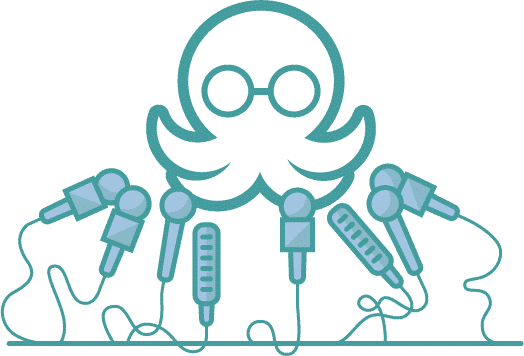Table of Contents:
What The X (formerly Twitter) Quality Filter Actually Does

Table of Contents:
You're here because you want to know alllll of the things about the X (formerly Twitter) quality filter. What is it? How does it work? And how does it impact what tweets get visibility?
Twitter's “quality filter” promises to limit the visibility of different types of tweets, including “content that appears to be automated.”
For the millions of people automating their updates using scheduling tools, that might seem...a little alarming.
But don’t worry! Twitter’s quality filter is actually a good thing - like, a REALLY good thing. (Even if you automate your tweets.)
To understand why, let’s take a look at what exactly this thing even is - and what it isn’t.
It’s all about the twitter notifications
One of the great things about Twitter is that you can reach out to literally anyone you want. All it takes is an @-mention in your tweet, and they’ll be notified that you’re talking about them - they might even reply!

One of the WORST things about Twitter, though, is that you can be reached by literally anyone. All it takes is an @-mention in their tweet, and you’ll be notified that they’re talking about you - even if they’re not saying something particularly nice.
In the past, this has made Twitter a convenient tool for harassing public figures - a place where anyone could easily and anonymously flood someone’s notifications tab with whatever brand of hate speech they so desired. It’s a problem that’s affected everyone from comedians and cartoonists to Olympic athletes, and with little intervention from Twitter itself. Until now, anyway.
Twitter is finally addressing its ongoing issues with accessibility and abuse, and it’s doing so in two parts.
First, Twitter introduced new notifications settings.
These settings allow you to decide who you see notifications from - specifically, it allows you to restrict your notifications to users who you follow.(That way, if people you don’t follow @-mention you, it won’t show up in your notifications.)
This is a relatively strict guideline, though - after all, you might not want to suspend notifications from every single person you don’t already follow on Twitter. That’s where the quality filter comes in.
The quality filter also limits what you see in your notifications, but it isn’t quite as ruthless. You’ll still be able to see notifications from people you don't already follow - just with a few restrictions thrown in.
If a marketing bot tweets the same automated message at you over and over, for example, it might get filtered out of your notifications. Same with the randos who send the same trolling comments every day - or the ones who seem to like you just a little too much.

Basically, the quality filter is a way to keep low-quality and/or automated mentions out of your notifications tab.The quality filter does NOT, however, affect content from any of the accounts you follow.It also doesn’t filter content from accounts you’ve recently interacted with, either, so it essentially doesn’t prevent you from seeing any of the content it knows you actually care about.
What the Twitter quality filter means for what you post
That’s what all this means for someone using the quality filter - but what does it mean for you and the tweets you share? Probably nothing.
Unless you’re an actual social media harassment enthusiast - and we’re gonna go ahead and assume that you aren’t - this shouldn’t affect you or your visibility very much at all.
Remember, your visibility won’t be affected at all for people who follow you - and aside from the occasional tailored suggestion, a person’s Twitter timeline is pretty much only people they follow.
If someone doesn’t follow you, and they have the quality filter turned on, and you frequently @-mention them in the same automated post over and over, then that specific post might not show in their notifications tab every time. (It’s not exactly a huge loss.)
These tools are designed to curb harassment by limiting the number of notifications people receive under very specific circumstances - NOT to stop your tweets from showing up for the people who follow you. So what are your thoughts? Does this sound like a sensible solution to Twitter’s harassment problem? (Did the way Twitter initially announced it make it sound kind of scary and confusing? Because that’s been a thing in the past, too.)
Subscribe to our newsletter
Are you ready to automate your socials?
Say goodbye to manual scheduling and hello to effortless automation.


